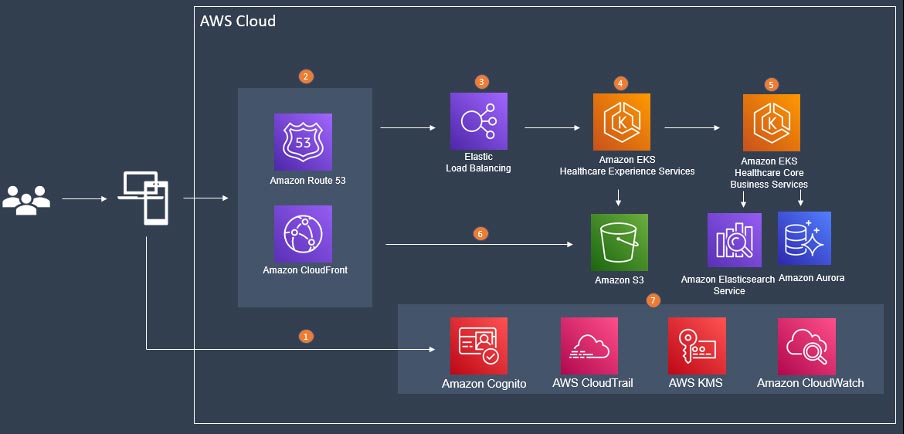
Our medical records and history grow with us. It starts at birth and keeps growing year after year. Maintaining and integrating these documents across healthcare institutions is by no means an easy task. Retaining these historical records for a longer period also becomes a difficult proposition. Today, there is an accelerated need for data digitalization and availability of data to be exchanged between multiple healthcare institutions. Most medical institutions use custom healthcare systems based on their operating models. The data generated by these systems are stored locally in multiple custom formats which creates a bottleneck for data availability outside of medical institutions. Integration of different distributed healthcare systems requires standardization in healthcare data exchange, connectivity and interoperability to drive desired benefits for patients and healthcare institutions.
What is Healthcare Data Interoperability?
Healthcare data interoperability is the ability to exchange and understand the data which provides a syntactic and semantic understanding as it moves across the healthcare domain. The fast-growing healthcare industry requires patient’s records to be readily available, discoverable and understandable. HL7 (Health Level Seven International) has developed an interoperability specification for the exchange of healthcare information electronically which is known as FHIR (Fast Healthcare Interoperability Resources). It enables data to be shared across healthcare IT systems in a readable and usable manner. The instant incorporation of medical records from different facilities makes a complete EHR (Electronic Health record) accessible to patients, practitioners, healthcare organizations and implementers seamlessly. FHIR supports JSON, HTTPS, XML, OAuth and REST API based implementation which is gaining momentum in healthcare industry.
How is Healthcare Data Interoperability implemented on AWS Cloud?
AWS Cloud helps create an ecosystem for healthcare industry by providing a platform for robust exchange of data. This platform helps to load patient’s historical records called as observations using API that easily registers as a bundle resource. It supports multiple interactions such as posting, searching and updating bundles.
The reference architecture below depicts a model for Healthcare Data Interoperability on AWS Cloud.

User requests are authenticated and authorized using Amazon Cognito.
Once authenticated and authorized, request is further routed to Amazon Route53 for DNS resolution of the elastic load balancer.
The request is load balanced using AWS Elastic Load Balancer for the respective healthcare experience APIs.
Initially the request is validated by the experience services deployed in Amazon EKS.
Once validated, request is further routed to Healthcare Core Business Services for further processing. Amazon Aurora stores the static configuration data required for request processing and the dynamic response generated for every request. Logs generated by core services can further be analysed using Amazon Elasticsearch.
Static healthcare reports are served through Amazon S3 and can be cached with Amazon CloudFront for faster delivery.
AWS CloudTrail, AWS KMS and Amazon CloudWatch are used for API auditing, Data Encryption, and observability purpose, respectively.
What are the benefits of Healthcare Data Interoperability on AWS Cloud?
Consistent and easy to implement approach for exchanging data between healthcare systems.
Improved healthcare services delivery by making data readily accessible.
Standardized and structured data for automated clinical support and other machine-based processing
Elimination of manual exchange of information by feeding directly into workflows.
24×7 healthcare on demand data availability across geographic locations.
Managed infrastructure for ever growing and huge volume of data.
Statistical analysis on bulk data to analyse medical trends with AI/ML capabilities.
Healthcare Data Interoperability aids in breaking the silos and facilitates unified integration of information across healthcare institutions. Collaboration, communication, and co-execution is extremely critical in the post pandemic new world order where Healthcare Data Interoperability on AWS Cloud will make on time quality care available for a lower possible cost.
Visit https://www.ibm.com/services/cloud/aws to know more IBM services for AWS.
See What’s Next in Tech With the Fast Forward Newsletter
Tweets From @varindiamag
Nothing to see here - yet
When they Tweet, their Tweets will show up here.





























